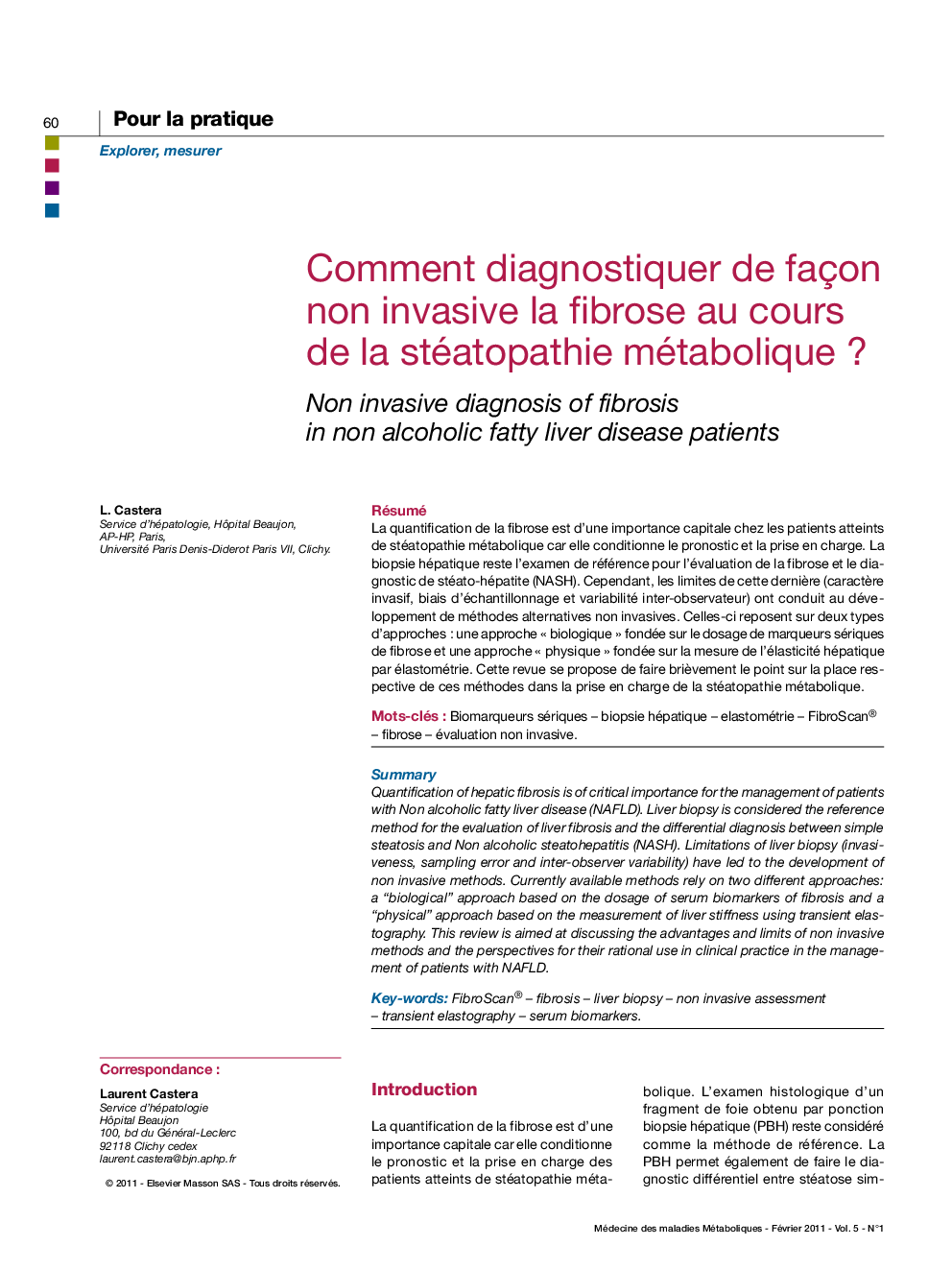| Article ID | Journal | Published Year | Pages | File Type |
|---|---|---|---|---|
| 3275005 | Médecine des Maladies Métaboliques | 2011 | 6 Pages |
Abstract
Quantification of hepatic fibrosis is of critical importance for the management of patients with Non alcoholic fatty liver disease (NAFLD). Liver biopsy is considered the reference method for the evaluation of liver fibrosis and the differential diagnosis between simple steatosis and Non alcoholic steatohepatitis (NASH). Limitations of liver biopsy (invasiveness, sampling error and inter-observer variability) have led to the development of non invasive methods. Currently available methods rely on two different approaches: a “biological” approach based on the dosage of serum biomarkers of fibrosis and a “physical” approach based on the measurement of liver stiffness using transient elastography. This review is aimed at discussing the advantages and limits of non invasive methods and the perspectives for their rational use in clinical practice in the management of patients with NAFLD.
Keywords
Related Topics
Health Sciences
Medicine and Dentistry
Endocrinology, Diabetes and Metabolism
Authors
L. Castera,
